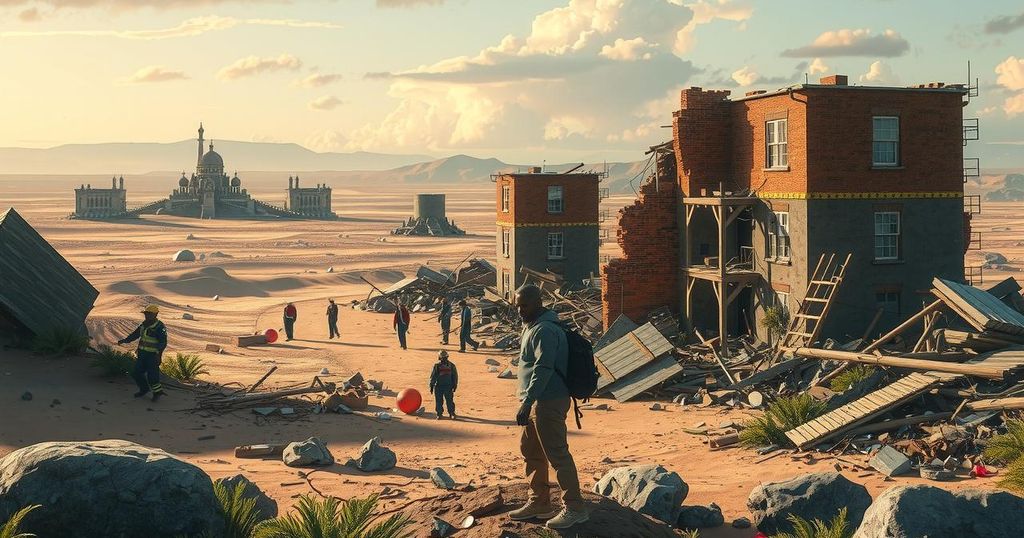Myanmar Earthquake: Rising Death Toll and Urgent Humanitarian Needs Amid Civil Conflict

A 7.7 magnitude earthquake in Myanmar has led to over 2,000 deaths, with the toll expected to exceed 3,000. Rescue workers continue efforts, recovering survivors amid dwindling hopes. Severe humanitarian needs arise with reported shortages of clean water and medical supplies. The ongoing civil conflict complicates rescue efforts and aid delivery as the nation faces dual crises.
A devastating earthquake of 7.7 magnitude has struck Myanmar, resulting in a death toll that officials predict will exceed 3,000. Over 2,000 individuals have already lost their lives, worsening an ongoing humanitarian crisis exacerbated by civil war. General Min Aung Hlaing, the leader of Myanmar’s ruling military junta, reported at least 441 people remain unaccounted for following the quake. The UN’s Office for the Coordination of Humanitarian Affairs expressed concerns about dwindling hopes for further rescues as the critical search window closes.
Rescue operations continue, with notable successes amid despair, such as the remarkable rescue of a 63-year-old woman from under the rubble after 91 hours. The Myanmar fire department has confirmed the rescue of 403 individuals in Mandalay and the recovery of 259 bodies thus far. Some families, including Buddhist monks, suffered tremendous loss with many casualties reported from a monastery collapse. Despite slow international aid progress and severe infrastructural damage, stories of survivors continue to emerge.
The World Health Organization indicated over 10,000 buildings have either collapsed or sustained severe damage due to the earthquake, which also affected Thailand. In Bangkok, a construction site incident resulted in the loss of 20 lives and dozens more missing, prompting an investigation into potential building code violations. During a moment of silence for earthquake victims, search efforts were temporarily halted, highlighting the scale of the tragedy.
International aid is critical; numerous countries have pledged assistance for the ongoing humanitarian challenges. The UN has raised alarms over severe water shortages, raising risks of cholera. Prior to the earthquake, Myanmar faced health care deficits, with many lacking essential vaccinations. The urgent need for safe drinking water and proper shelter remains critical, especially with the monsoon season imminent.
Beyond the earthquake, Myanmar’s social fabric is deteriorating due to civil strife, with over 3 million displaced from their homes. Armed resistance has escalated following the military coup in 2021. The National Unity Government has sought a unilateral ceasefire and called for unimpeded humanitarian access for earthquake victims. Observers note previous military obstructions of aid and emphasize the necessity for immediate action to save lives.
The earthquake in Myanmar underscores a dual crisis of natural disaster and ongoing civil conflict. With rising casualties and urgent humanitarian needs, immediate international support and unimpeded aid access are vital for saving lives. As the country grapples with this disaster amidst political instability, a focused effort on providing essential resources and relief is needed to mitigate the profound suffering endured by the population.
Original Source: www.cbsnews.com







